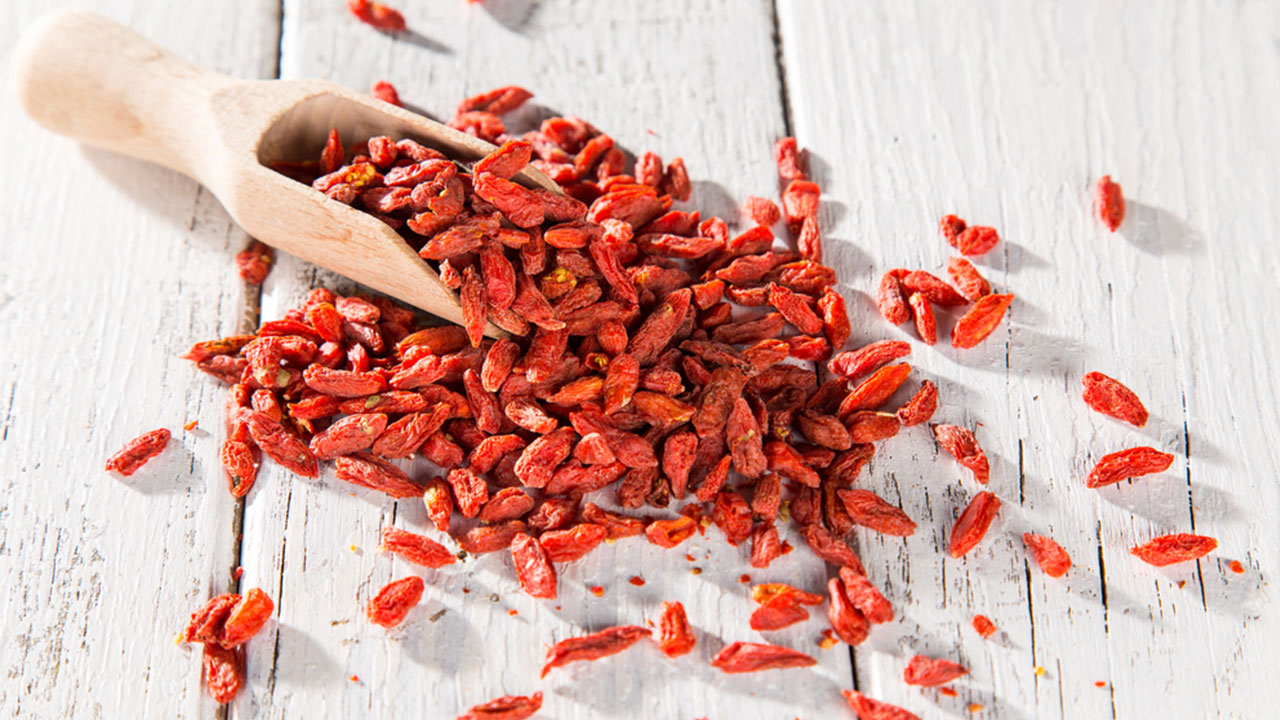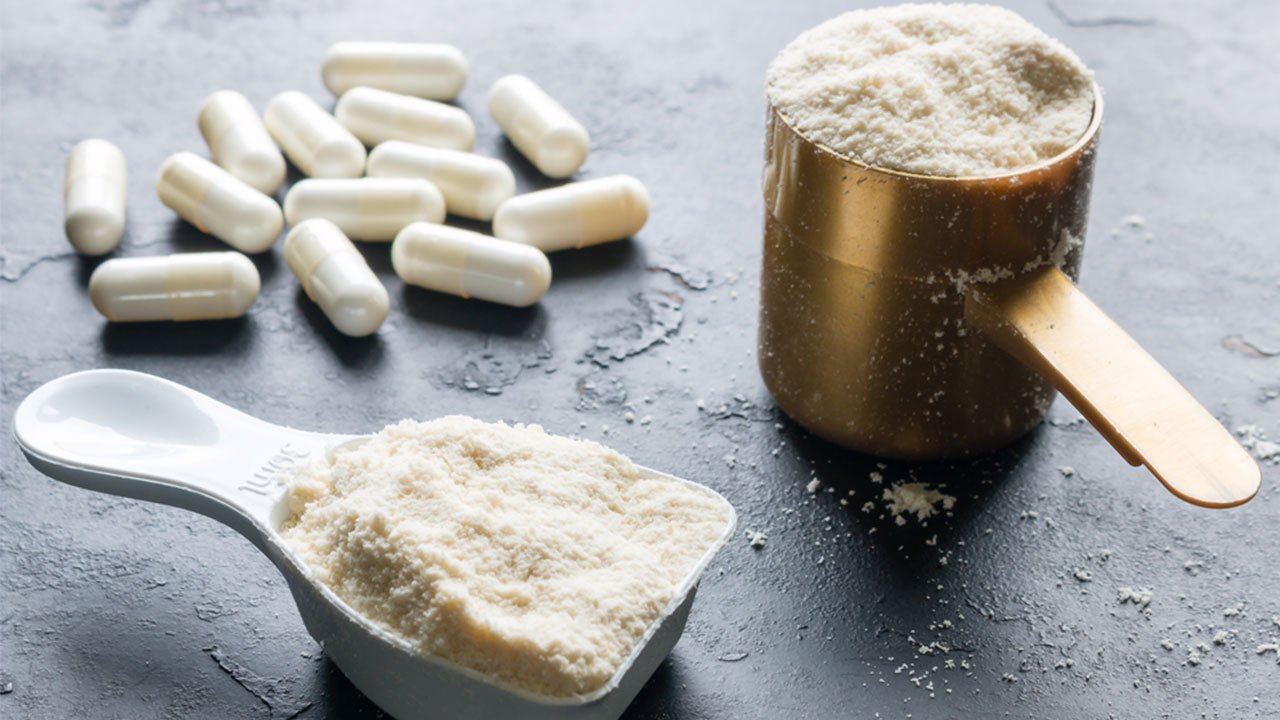Betaine Sources, Uses and Health Benefits
 By: by Amino Science
By: by Amino Science

Betaine is a methyl derivative of the amino acid glycine and can be found in food sources like sugar beets, spinach, shellfish, and wheat. As a methyl donor in chemical reactions within the body, betaine is important for liver and kidney health, and without it there can be fatty accumulation in the liver leading to serious cerebral, coronary, vascular, and hepatic diseases—dangerous consequences for your brain, your heart, your bloodstream, and your liver. With a sufficient amount of betaine you can protect your organs, improve certain cardiovascular risk factors, and increase your physical performance. For more about where betaine comes from and how it impacts your health, read on.
What Is Betaine? Where Does It Come From?
A naturally occurring amino acid derivative, betaine is also known as trimethylglycine (TMG). It's a nonessential nutrient, meaning we don't have to consume it to get it, as our normal functioning produces betaine as a byproduct of the nonessential amino acid glycine. However, beneficial amounts of betaine can be found in foods, including:
- Sugar beets
- Rye grain
- Brown rice
- Quinoa
- Wheat bran
- Sweet potato
- Turkey breast
- Beef
- Veal
- Spinach
- Shellfish
Betaine was first discovered in the 19th century in sugar beets, which is where its common name is derived from. Its scientific name, trimethylglycine, describes its chemical composition: a glycine derivative attached to three (tri-) methyl groups on the molecular level. This is what gives it the ability to be a methyl donor (along with vitamin B12 and folic acid) when it comes in contact with other chemical compounds throughout the body. Methyl donation occurs in a process called methylation. The methylation process is crucial in protein function and many other critical actions in the body.
Betaine is also an organic osmolyte, a compound involved in the osmosis process, moving fluid into and out of cells to maintain fluid balance and prevent cell shrinkage or rupture. An imbalance there could lead to cell death.
The Health Benefits of Betaine
Betaine has long been a subject for scientific study in the realm of heart health and the prevention and treatment of heart disease, but more recently people have been taking betaine to enhance their exercise performance and improve their body composition as well. For more on how betaine can impact liver detoxification, heart health, digestive function, muscle building, and body fat loss, read on.

1. Liver Function and Detoxification
Fatty acid buildup in the liver can lead to severe health consequences, including obesity, diabetes, and fatty liver disease. Fatty acids can accumulate due to dietary choices like eating too many sugary or fatty foods or consuming excessive amounts of alcohol. Liver buildup of fatty acids can cause abdominal pain, fluid retention, cardiovascular problems, and muscle wasting, not to mention damage and scarring to the liver. While the liver is one of our most resilient organs (able to heal itself in ways that our heart and our kidneys, for example, cannot), long-term damage and scarring can build up too, causing permanent damage and even liver failure or death.
The use of betaine treatments for hepatoprotection against conditions like fatty liver disease and nonalcoholic steatohepatitis has proven effective due to betaine's ability to aid in recovery from liver damage and protect the liver from certain hepatotoxins like ethanol or carbon tetrachloride. Those toxins can find their way into our bodies through contact with pesticides, herbicides, and even some prescription medications. Detoxing them from the body without long-lasting liver damage is one of the top benefits we can all gain from betaine.
2. Heart Health
The cardiovascular benefits of betaine are the most thoroughly documented by researchers. By quickly and safely reducing the plasma homocysteine concentrations in our bloodstream, betaine protects us from homocystinuria, a condition characterized by high homocysteine levels that can lead to the development of arterial plaque and ultimately heart disease.
Betaine can lower homocysteine levels by providing homocysteine molecules with one of its three methyl groups, transforming homocysteine into the amino acid methionine, which is beneficially used in protein synthesis and liver cell protection against toxins, like in cases of acetaminophen (Tylenol) poisoning. Betaine has even gained Food and Drug Administration (FDA) approval for safe use in treating homocystinuria.
3. Digestive Aid
Our stomachs require a sufficient amount of stomach acid to digest the food we eat. If you have low stomach acid (a condition called hypochlorhydria), your food will only be partially digested, resulting in a lower absorption rate of the nutrients you consume. In some instances (as in the case of essential amino acids, vitamins, and minerals) we can only gain the necessary nutrients needed to live and function by consuming and then absorbing them. Absorption disorders can quickly lead to different forms of anemia, malnutrition, and wasting that detrimentally impact our health. Gastrointestinal overgrowth of Candida (a yeast bacteria) has been scientifically linked with lower levels of stomach acid.
The biggest component in stomach acid is hydrochloric acid (HCl), and an estimated half of individuals over 50 are not producing enough of it. Luckily betaine HCl, a combination of betaine and hydrochloride naturally found in beets, can work as an effective treatment for hypochlorhydria (a total absence of stomach acid). When taken as a supplement, betaine HCl increases the production of hydrochloric acid in the stomach, aiding digestion and enhancing the absorption levels of nutrients like iron, calcium, vitamin B12, and protein.
It should be noted, however, that betaine HCl should not be taken by those who have peptic ulcers, severe atrophic gastritis, or an inflammation of the stomach lining. While it used to be an over-the-counter drug often combined with vitamin B6, this form of betaine has since been banned (in 1993) from over-the-counter sale because it could not be recognized as "generally safe" by the FDA. It is now only available in supplement form, and because supplements are largely under-regulated, you should consult a health care professional for medical advice on the proper doses of betaine hydrochloride before taking it.
And while we're on the subject, betaine hydrochloride should not be confused with betaine anhydrous, which is the FDA-approved form of betaine that is deemed safe and effective for treating high levels of homocysteine.
4. Muscle Building and Fat Loss
Due to betaine's role in metabolizing protein, it has recently come into popular use as a workout supplement for muscle building and bodyweight management. Included in many pre-workout nutrient formulas, clinical trials have shown that betaine supplementation can help increase muscle power and endurance all while promoting the loss of dangerous body fat. This combination results in improved body composition for those who utilize betaine as a workout enhancement.
Be Better with Betaine
Betaine supplementation is not advised for children or pregnant or breastfeeding women. This is due not to any adverse side effects reported, but because of a lack of scientific evidence on the effects of high betaine levels in those populations. Likewise betaine hydrochloride can be dangerous for anyone with peptic ulcers or issues with their stomach lining, and should only be taken under a doctor's approval.
However, as betaine is a naturally occurring compound in our bodies and vital for many important functions, it's otherwise regarded as a safe way to protect your liver, enhance your physical performance, and help your heart. Consult with a medical professional if you have any hesitations, and find out what betaine supplementation could do for you.
In addition to betaine, essential amino acids have been proven to help protect the health of your liver and heart and boost athletic performance. Shop Amino Co blends here.

Up to 25% off Amino
Shop NowTAGS: supplements
Join the Community
Comments (0)
Most Craveable Recipes




 833-264-6620
833-264-6620



















